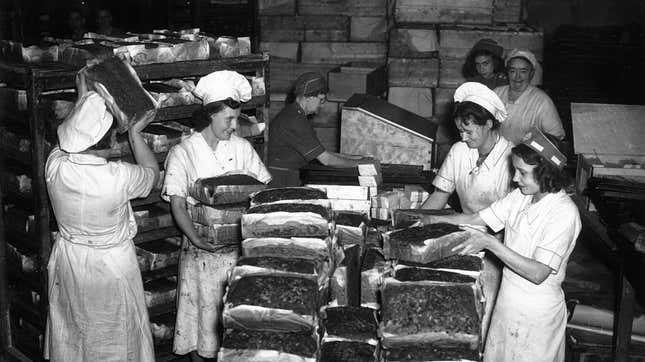For Women Chefs, 'Badass' Is Not a Compliment
Latest

The stereotypical chef is a white man in a white uniform yelling insults at a kitchen full of terrified underlings. So maybe a decade ago, calling a woman chef a “badass” in a restaurant review or an article mentioning James Beard Award nominees perhaps denoted a person looking to stand up to those old tropes of ill-tempered men as the only ones capable of culinary greatness.
But woman chefs say that the term “badass” is so overused that it has become a lazy, meaningless platitude for writers attempting to acknowledge women in a predominantly male industry. According to a new book called Women on Food, featuring essays and Q&As from famous chefs like Nigella Lawson and Rachael Ray, badass is the one word women in the food world would overwhelmingly like writers to stop using to describe them:
“It’s like interesting: so bland as to be almost meaningless,” Eater Features Editor Rebecca Flint Marx told NPR. “It’s a token word that only conveys pandering.”
Women chefs also say that the word needlessly associates them with those old male chef stereotypes—loud, pushy, and arrogant—in a way that implies that possessing these traits is the only way to be a “real” chef:
“‘Badass is a detonated way to describe a kind of cultural male whiteness — an aggressive, swaggering one,’ Women on Food’s author Charlotte Druckman told NPR. ‘And then it gets put onto women, as what feels like a tarnished ‘badge of honor,’ or backhanded compliment. Calling a woman — chef or otherwise — ‘badass’ is a way to signify that she’s cool or relevant because she’s acting like a man (specifically, an aggressive, swaggering one); that she is only of interest or worth consideration because she’s going against whatever ‘type’ it is she’d otherwise be categorized as because she’s a woman.”
Chefs also dislike the fact that the word was misappropriated from black culture in order to describe entitled, white male behavior and then used as a catch-all to serve as a participation ribbon for women chefs who stepped into traditionally male areas of the food world, like sushi and wood firing:
“‘It came out of black culture, and in that context, I think it’s a great word,’ Druckman said. ‘Seeing that word adopted to apply to a large, generic population that I think of (I know, it’s probably reductive), collectively, as representative of ‘white hard-partying, blustering frat boy culture’ is as far from resistance as you can get.’”
Women chefs would also like to axe the term “badass” for male chefs as well, along with “bad boy.”